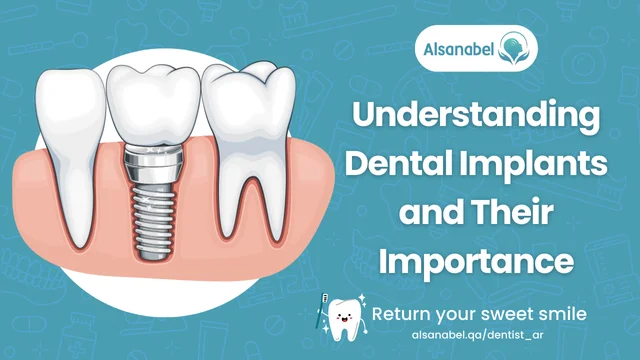
Tooth loss is a common issue that affects millions of people worldwide. Whether due to injury, decay, or aging, missing teeth can have a significant impact on oral health, speech, and self-confidence. Fortunately, advancements in dentistry have introduced highly effective solutions, with dental implants standing out as one of the most reliable and long-lasting options available.
In this comprehensive guide, we will explore the benefits of Tooth implants, how they function, the role of prosthetics, and the process of replacing missing teeth with artificial tooth to restore both function and aesthetics.
Understanding Dental Implants and Their Importance
Tooth replacement has evolved significantly, with implants now being the preferred method due to their durability and natural appearance.

What Are Dental Implants?
- A Tooth implant is a titanium post surgically placed into the jawbone to serve as an artificial root.
- Over time, the implant fuses with the bone in a process called osseointegration, providing a strong foundation for replacement teeth.
- Once healed, a custom-made crown, bridge, or denture is attached to the implant, restoring the missing tooth.
Why Are Implants Important?
- They prevent bone loss in the jaw, which naturally occurs after tooth loss.
- Unlike dentures, they provide a fixed and permanent solution.
- They help maintain proper alignment by preventing the shifting of adjacent teeth.
- They restore normal chewing and speaking functions, improving overall quality of life.
The Benefits of Tooth Implants Over Other Solutions
Tooth replacement options include dentures and bridges, but Tooth implants offer several advantages that make them the superior choice.
1. Longevity and Durability
- Unlike traditional dentures, which need replacement every 5-10 years, Tooth implants can last a lifetime with proper care.
- Made from biocompatible materials like titanium, they provide unmatched strength and stability.
2. A Natural Look and Feel
- Implants are designed to match natural teeth in shape, size, and color.
- Because they integrate with the bone, they feel just like real teeth when chewing or speaking.
3. Improved Comfort
- Unlike removable dentures, implants do not slip, cause irritation, or require adhesives.
- Once healed, patients often forget they even have an implant.
4. Preserving Bone Health
- Missing teeth can lead to bone deterioration due to lack of stimulation.
- Tooth implants prevent this bone loss by mimicking natural tooth roots.
5. No Damage to Adjacent Teeth
- Traditional bridges require modifying adjacent teeth to support the prosthetic.
- Implants stand independently, leaving surrounding teeth intact and healthy.
How Dental Prosthetics Enhance the Functionality of Implants
While dental implants provide the foundation, the final result depends on high-quality dental prosthetics that serve as replacement teeth.
Types of Dental Prosthetics Used with Implants
- Single-Tooth Crowns – Ideal for replacing individual missing teeth with custom-made crowns.
- Implant-Supported Bridges – Used when multiple teeth are missing, offering a fixed and stable solution.
- Full-Arch Dentures – When an entire row of teeth needs replacement, implant-supported dentures provide superior stability compared to traditional removable dentures.
Materials Used in Dental Prosthetics
- Porcelain – Offers the most natural appearance and stain resistance.
- Zirconia – Extremely durable and long-lasting.
- Composite Resin – More affordable but less durable than porcelain or zirconia.
The right choice of dental prosthetics depends on factors like cost, aesthetics, and durability preferences.
The Process of Getting Artificial Teeth Through Implants
Replacing missing teeth with artificial tooth using implants is a multi-step procedure that requires precision and expertise.
Step 1: Initial Consultation and Planning
- A comprehensive dental exam, including X-rays and scans, determines suitability for implants.
- The dentist discusses treatment options, costs, and expectations.
Step 2: Implant Placement Surgery
- The Tooth implant is surgically inserted into the jawbone under local or general anesthesia.
- Healing time varies between 3 to 6 months as the implant fuses with the bone.
Step 3: Attaching the Abutment
- After successful osseointegration, a small connector called an abutment is placed on the implant.
- The abutment serves as the base for the final artificial tooth.
Step 4: Placing the Permanent Prosthetic
- A custom-made dental prosthetic (crown, bridge, or denture) is secured onto the abutment.
- The final result looks, feels, and functions like a natural tooth.
The entire process may take several months, but the long-term benefits outweigh the waiting period.
Caring for Dental Implants to Ensure Longevity
Proper maintenance is crucial to the longevity of implants.
Daily Oral Hygiene Routine
✅ Brush twice a day using a soft-bristle toothbrush.
✅ Floss around the implant to remove plaque buildup.
✅ Use an antibacterial mouthwash to prevent infections.
Regular Dental Visits
- Schedule professional cleanings every six months.
- Routine check-ups help detect potential issues before they become serious.
Avoiding Damage to the Implants
❌ Do not chew on hard objects like ice or pens.
❌ Avoid smoking, as it increases the risk of implant failure.
❌ Limit sugary foods that can lead to gum disease.
Following these care guidelines ensures artificial tooth remain in excellent condition for years.
Potential Risks and Considerations
While dental implants have a high success rate, it is essential to be aware of possible risks.
Common Risks Include:
- Infection at the Implant Site – Proper hygiene reduces this risk.
- Nerve Damage – Rare but may cause temporary numbness.
- Implant Failure – Can occur if the bone does not fuse properly.
- Sinus Issues – Upper jaw implants may affect the sinuses.
Despite these risks, careful planning and an experienced dentist can minimize complications.
Frequently Asked Questions

1. What Are Dental Implants?
Dental implants are titanium posts surgically placed into the jawbone to serve as a foundation for replacement teeth. They provide a permanent solution for missing teeth.
2. Are Dental Implants Permanent?
Yes, with proper care, Tooth implants can last a lifetime. However, the attached prosthetic (crown, bridge, or denture) may need replacement after 10-15 years.
3. What Is the Cost of Dental Implants?
The cost varies based on factors like the number of implants, location, and complexity of the procedure. On average, a single implant can cost between $3,000 to $5,000.
4. How to Care for Dental Implants?
Daily brushing, flossing, and regular dental visits are essential for maintaining implant health. Avoiding smoking and hard foods also helps prolong their lifespan.
5. What Are the Risks of Dental Implants?
Although rare, risks include infection, nerve damage, implant failure, and sinus complications. Choosing a qualified dentist and following post-surgery care instructions reduces these risks.
For individuals seeking a permanent and natural-looking solution for missing teeth, implants provide unmatched benefits. Whether replacing a single tooth or a full set, Tooth implants offer durability, stability, and confidence. With advancements in prosthetics, modern artificial tooth look and function just like natural ones.
By understanding the implant process, its benefits, and potential risks, individuals can make informed decisions about restoring their smiles. If you are considering implants, consult a reputable dental specialist to explore your options and begin your journey toward better oral health.
